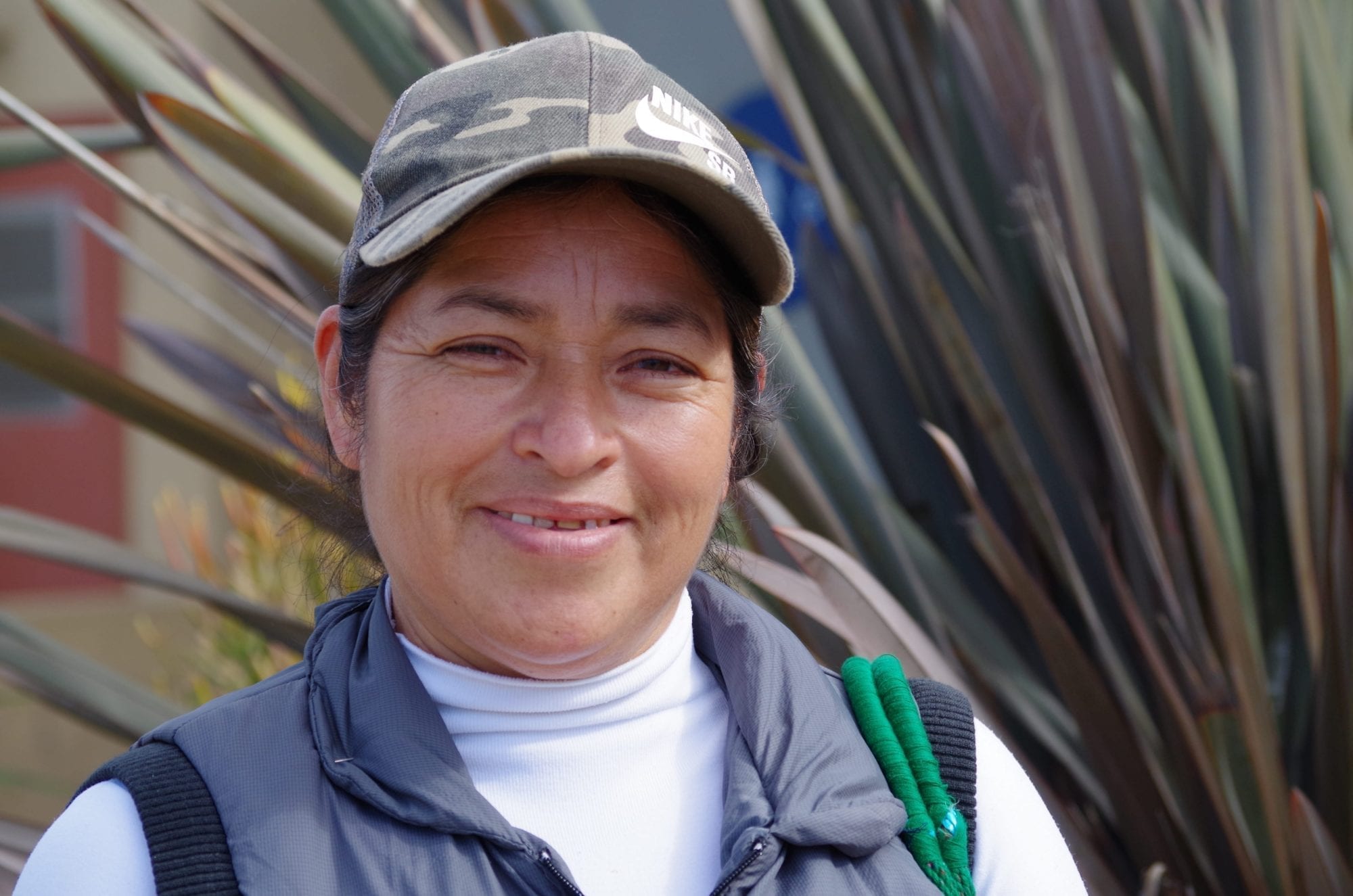When thousands of farmworkers from Mexico’s coastal state of Baja California waged a 12-week strike in 2015 to protest poverty wages—roughly $4 a day—and poor working conditions like lack of access to water, Abelina Ramírez saw her chance to ensure women’s concerns, such as sexual harassment in the fields, were addressed.

“It’s important for us to get the message out to workers to join the union”—Abelina Ramírez Credit: Solidarity Center/Tula Connell
“I decided to join the national caravan [in 2017] from San Quintín to Mexico City,” says Ramírez. “I joined the coordinating team because neither [of the organizations leading the strike] had a woman leader who could speak to any of these issues, and that’s where I got fully involved,” she says, speaking through a translator. (Ramírez discusses her work here.)
The strike drew international attention to the conditions of the region’s roughly 80,000 workers who pick berries and tomatoes for 160 different agro-industiral companies, and workers ultimately won wage increases, boosting pay from approximately $4 per day to $8-$10.
Ramírez, now alternate secretary of equality for the National Independent and Democratic Union of Farmworkers (Sindicato Independiente Nacional Democrático de Jornaleros Agrícolas, SINDJA), was among speakers at the recent Solidarity Center conference in Los Angeles, “Realizing a More Fair Global Food Supply Chain.”
In an interview with the Solidarity Center, Ramírez says workers are still fighting for their original 14 core demands, among which is onsite medical facilities. Workers who are injured or fall ill in the fields must be transported long distances to receive care, and some have died in transit, she says.
Further, despite the wage increase, farmworker pay is still comparable to wages paid in much poorer countries, and farmworkers say a national wage category for them should be created, as exists for carpenters and other professional workers.
“What we’re fighting for is a professional-level salary because we see the work we do—cutting, picking and packing—as part of a professional category, and we’re not being respected,” says Ramírez.
Women Farmworkers Struggle to Care for Their Children
Like many women and men in Mexico’s southern Oaxaca region, Ramirez saw an opportunity to improve her livelihood when a labor recruiter showed up promising good wages for picking berries and tomatoes far north, in San Quintín.
“When there are no options because of poverty, we end up migrating,” says Ramírez, who has picked berries for 13 years.
Most mothers who migrate for work take their children but, once in the fields, find no public services and no child care, and “that’s when you realize this crude reality of what moving has meant—you can’t provide for your children and give them an education,” she says. Unable to afford decent housing on the low wages they are paid, many farm laborers are forced to live in company or government encampments—each family occupying a space between 9 square feet and 13 square feet, with shared bathrooms and laundry.
“That’s why it’s important for us to get the message out to workers to join the union, she says. “It’s important for them to realize that together, we can join forces and go up against the employers and the government and get a better life for ourselves and our families.”
Ramírez holds workshops on labor rights, including equality, and now seven women trained by the union meet with women farmworkers to encourage them to take part. She reaches the women by “starting with issues that matter to them: They care about child care, medical attention,” says Ramírez.
As she experienced during the 2015 strike, when “everybody joined, my family, my children joined, we got our signs and we went out,” Ramirez says “we knew that we could achieve something if we all went out.”
And that’s why Ramírez sees union organizing as fundamental to improving worker rights.
“Because coming together, through our unity, we’re going to achieve the changes we’re striving for.”

